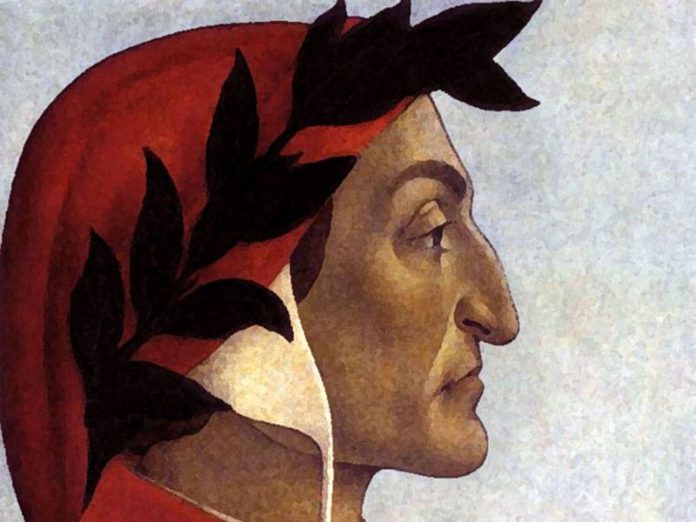by InTrieste
Italy on Tuesday marked the fifth edition of Dantedì, the national day dedicated to Dante Alighieri, the medieval poet and philosopher widely regarded as the Father of the Italian language.
The annual celebration, which fell on March 25, commemorated the author of The Divine Comedy, whose influence on Italian literature and identity remains unparalleled. The date was chosen by scholars as the symbolic beginning of Dante’s journey through the afterlife in his epic poem.
This year’s observance followed the milestone 700th anniversary of Dante’s death in 2021, with cultural institutions across the country organizing a rich program of readings, conferences, documentary screenings, and theatrical productions in his honor.
Dante’s masterpiece, a sweeping vision of the afterlife, takes readers through the realms of Inferno (hell), Purgatorio(purgatory), and Paradiso (heaven). Written in the early 14th century, its 14,233 lines were composed in the Tuscan vernacular, a linguistic choice that ultimately laid the foundation for modern Italian. By forgoing Latin in favor of a language more accessible to the common people, Dante not only revolutionized literature but also shaped the evolution of Italy’s national tongue.
Among the many tributes planned, the city of Ravenna, where Dante spent his final years and where his tomb lies, hosted a series of special events. The celebrations drew visitors from across Italy and beyond, including Britain’s King Charles III, who is set to visit Dante’s resting place as part of his upcoming tour of Italy with Queen Camilla.
The enduring legacy of Dante, whose influence extends far beyond literature into philosophy, politics, and theology, continues to be a source of pride and reflection for Italy. As the country paused to honor its literary icon, Dantedì stood as a reminder of the power of language and storytelling in shaping a nation’s cultural heritage.





























